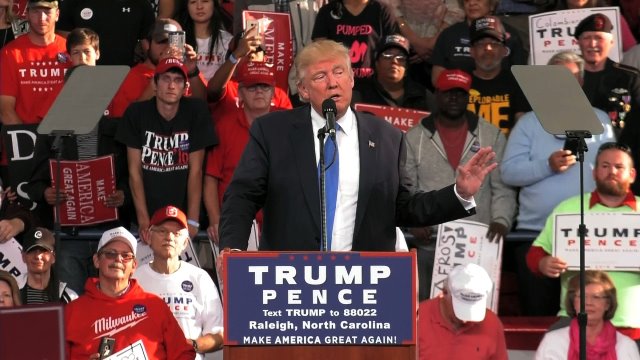Donald Trump was asked Wednesday by the New York Times why he thought Democrats were opposing Neil Gorsuch’s nomination to the Supreme Court. Here’s how he answered:
“Well, I think that some of it had to do with the election. They thought they were going to win. You know, winning the Electoral College is, for a Republican, is close to impossible and I won it quite easily. And I think they are still recovering from that, but they are recovering now.”
The reason Trump thinks Democrats oppose his pick for the Supreme Court is because he won the electoral college vote so easily. Er, ok.
This is a far from isolated incident with Trump. Although he is rapidly approaching the 100th day of his presidency (this is day 77) , Trump — almost daily — finds a way to shoehorn the fact that he won when no one else said he could into conversations.
There was the time in mid-February when at a press conference Trump said he had won the biggest electoral college victory since Ronald Reagan. When informed that was in fact, um, totally wrong, Trump responded: “I was given that information. Actually, I’ve seen that information around. It was a very substantial victory. Would you agree with that?”
Or the time when Trump, at an event at the White House kicking off Black History Month, said this: “If you remember, I wasn’t going to do well with the African-American community, and after they heard me speaking and talking about the inner city and lots of other things, we ended up getting — I won’t go into details — but we ended up getting substantially more than other candidates who had run in the past years.”
Or earlier this week at the North America’s Building Trade Union’s legislative conference when he told the assembled crowd: “I had the support of almost everybody in this room…No, we did. We had tremendous support…We really had the support of the workers.”
There’s, literally, a dozen more examples of Trump calling back to the 2016 election in public speeches or comments to the press.
On one level, it makes perfect sense. The 2016 election — the primary campaign and the general election — was, literally, the high point of Trump’s life. It was a perfect encapsulation of everything that drives him: Initially mocked by the political class, he shoved it in their face — big time. It proved to him that he knew better than all of the so-called experts.
You think my presidency is going bad right now, Trump seems to say. Well, you were the same people who never thought I would get here. So what the hell do you know?
Fair enough. At the same time, constantly reminding people of a past triumph isn’t the best way to move forward. Reliving the touchdown you threw in the state title game works for a few weeks afterword. But if you are 40 and still talking about the fact you could throw a football over a mountain, there’s a very strong chance you are in a rut.
At some point — ideally soon — Trump needs to leave off using the fact that he shocked the world in 2016 as a crutch to justify anything and everything he does. Dwelling too much on past accomplishments is a recipe for stunting future progress.



